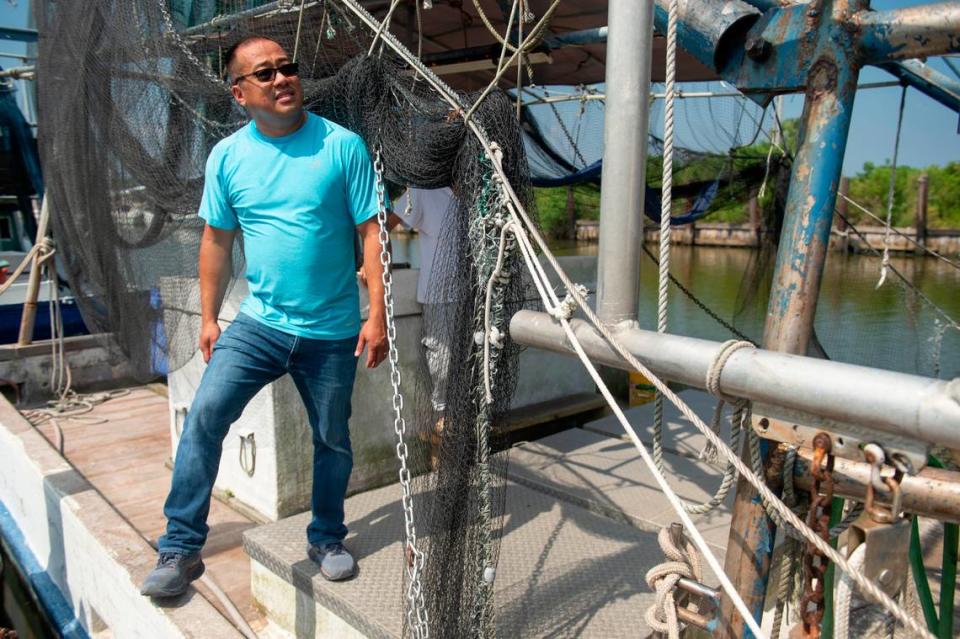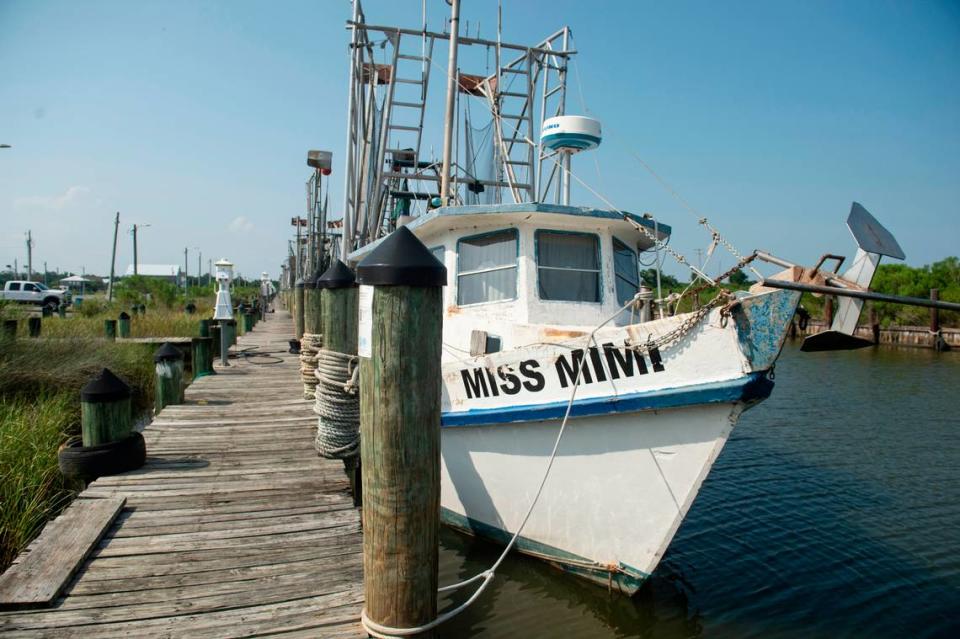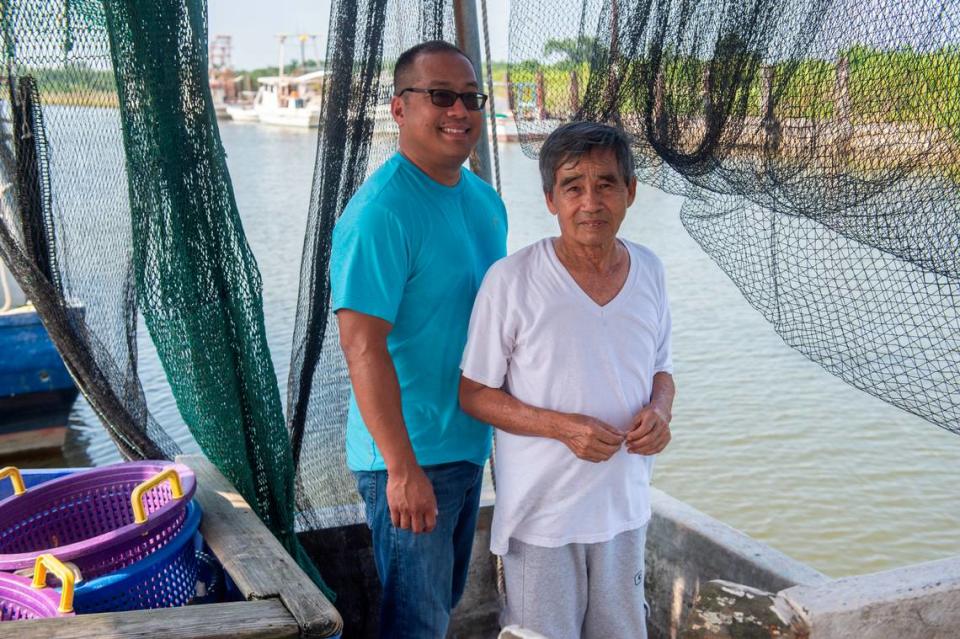The new Vietnamese generation leaves the seafood business behind in Mississippi. Why?
Editor’s note: This article was done in conjunction with the School of Media & Communication at the University of Southern Mississippi as part of a grant exploring how to support local journalism.
The son does not know how to sew the nets. The father took the old boat out last month, but caught no shrimp. And the docks at Bayou Caddy, where Sau Truong once taught young Elvis Ta the ways of the Gulf of Mexico, are quiet this summer. The fishermen have all gone home.
“Real soon,” Ta predicts, “the Gulf Coast shrimp industry will be gone.”
One by one, the children of Vietnamese fishermen on the Mississippi Coast are forsaking the livelihood that once meant everything to their families. The water was Truong’s world — four decades ago, he had fled home, crossed an ocean and eventually bought his own boat. He had never learned English but borrowed money and saved what he could to forge a life in a new place doing the only work he knew how.
But so much has changed since those early days: Hurricane Katrina, a devastating oil spill, freshwater floods and tumbling prices have plunged fishermen from Texas to Florida into crisis. State officials estimate that those forces have killed more than 80% of shrimp in recent years, and now, many children and grandchildren of the Mississippi Coast’s roughly 10,000 Vietnamese residents are abandoning the Gulf – for good.
“It’s sad,” Ta said. But he knew he would never fish forever. His parents wanted him to go to school. They hoped he would get a good job. They needed him to have health insurance, so Ta works a 9-to-5 at the Department of Agriculture. He sells HVACs and solar. He owns a DJ company.
And he, with help from his sister, supports his father, whose career has left him dependent on children who once helped him catch shrimp but now make more money than he ever did.
“You’re losing a tradition,” said Jane Nguyen, a branch manager at Boat People SOS in Biloxi, a nonprofit that serves Vietnamese residents.
‘If there’s no shrimp, I sit at the house’
The federal government ruled the conditions in Mississippi and Louisiana a “disaster” last month, which meant shrimp have died so fast the industry now qualifies for congressional funding. On some trips now, Truong lost money – because at the same time he reels in less and less, the price of diesel for boats has soared, the country imported 1.8 billion pounds of shrimp last year and the price of most local catch has dropped less than $3 per pound.
In Vietnamese, through his son’s translation, Truong put it simply:
“If there’s shrimp, I’m going to work it. If there’s no shrimp, I sit at the house.”
Ta said he mostly sits at the house.
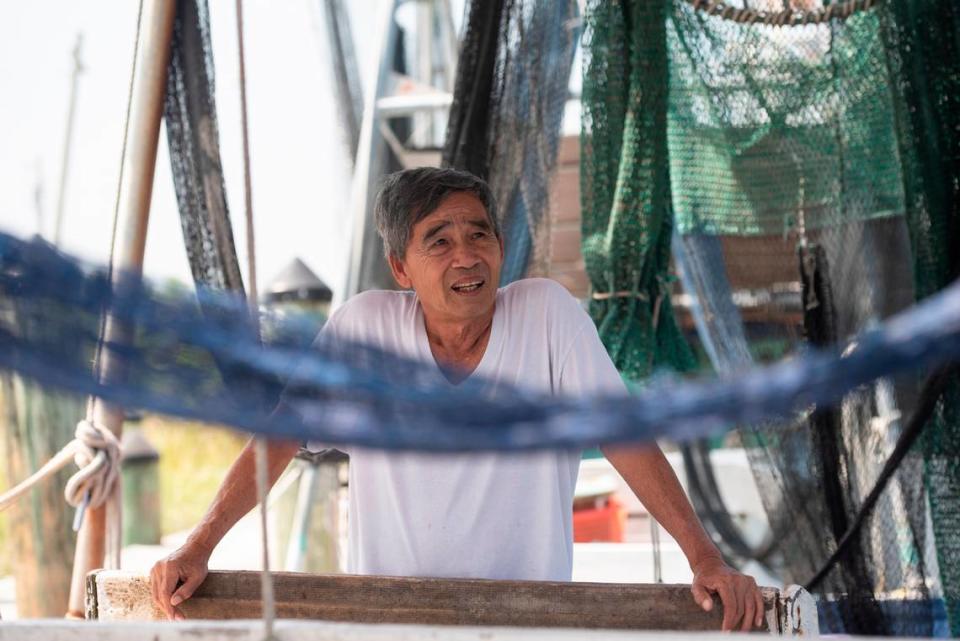
Truong is one of thousands of immigrants who came here in the 1970s and 80s to flee communist forces in the Vietnam War. They came to Mississippi, bought boats, sewed nets and took loans from seafood processors instead of banks, who would not lend to foreigners.
They became a fixture of the seafood economy on the Coast. They took jobs in oyster plants. They worked long hours. They saved. Many never learned English, but their children born here became their futures in an unfamiliar world, and they often took them to fish.
It was tough work: fishing trips lasted days at a time and they lived off the land. Some children saw their fathers for only weeks in a year.
Disasters plague Mississippi seafood workers
Then came disaster. Hurricane Katrina drowned the fishing boats.
Then another, when five years later, a Deepwater Horizon drilling platform exploded, spewed oil across the Gulf of Mexico and forced fishing across the region to a sudden and catastrophic halt.
Now, freshwater could ruin them. Louisiana opened its Bonnet Carre Spillway – a flood control gate outside of New Orleans – for 123 days in 2019. The rush of freshwater killed oysters and shrimp across the Mississippi Sound, and by then, state officials had sounded pleas for help.
“A lot of people are just trying their best to survive,” said Dave Do, a program coordinator at the Boat People SOS in Alabama.
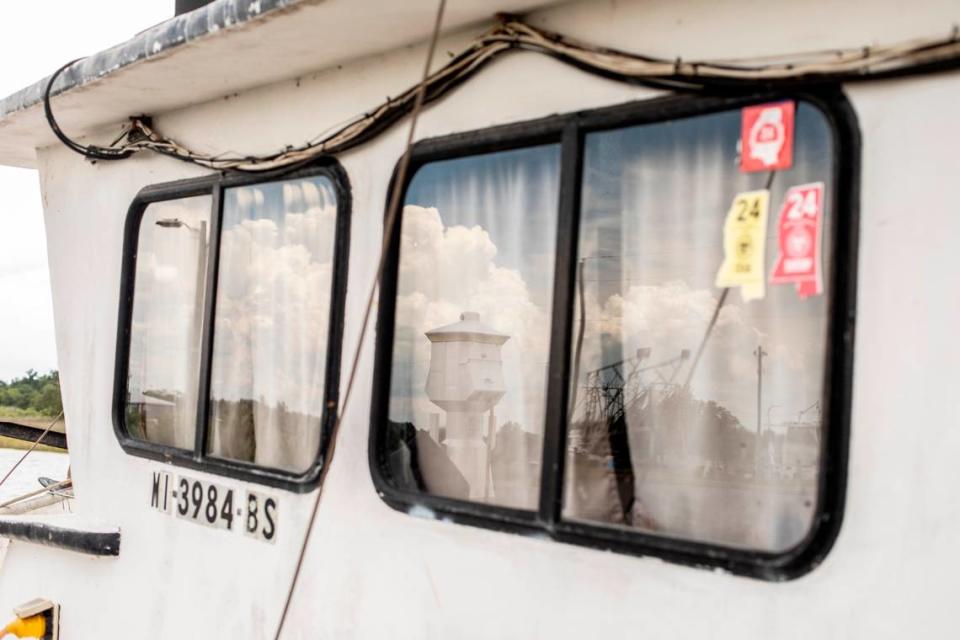
“It just really wasn’t worth it for them to even go out,” Nguyen said. “They’re spending so much more money on fuel versus what they’re getting once they sell.”
In June, federal officials ruled the freshwater floods a “commercial fishery failure” and told Gov. Tate Reeves disaster assistance would be available “in the near future.” They said losses ranged from 35 to 100%.
It is Mississippi’s fourth fisheries disaster declaration in 13 years, and is aimed at restoring long-term impacts that state officials said persist years after the region first got money from the spillway impacts in 2019.
‘You always want better for your children’
For some, the shift is not a shock. Nguyen said many parents are excited to see kids follow careers that they choose, instead of careers they have no choice but to do.
“As parents, you always want better for your children,” she said, and many have made peace with the fact that “better” does not include fishing.
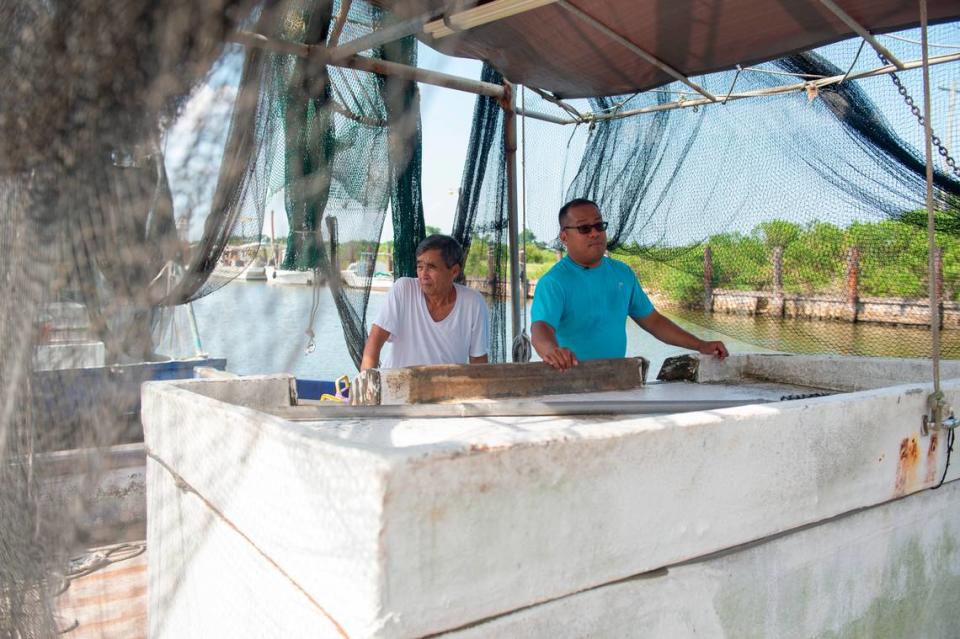
But tradition is hard to shake. Lang Le fled Vietnam for New Orleans in 1975, and now directs a service agency there called VIETNO. She said many people have abandoned fishing but not lost their passion for the water.
Now, Le said, fishing is “not so much a way of life, but it’s just a way of leisure.”
None of Ta’s cousins, their cousins or anyone else he knows plans to become a fisherman. Truong is the last one left, and he will take the rusting and faded boat out again this month, to try for shrimp.
Soon, he will retire, and return to Vietnam.
And then, Ta said, “that’s it.”
“There’s nobody coming behind us.”
Southern Miss Student Media Center journalist Sethanie Smith contributed to this report.
